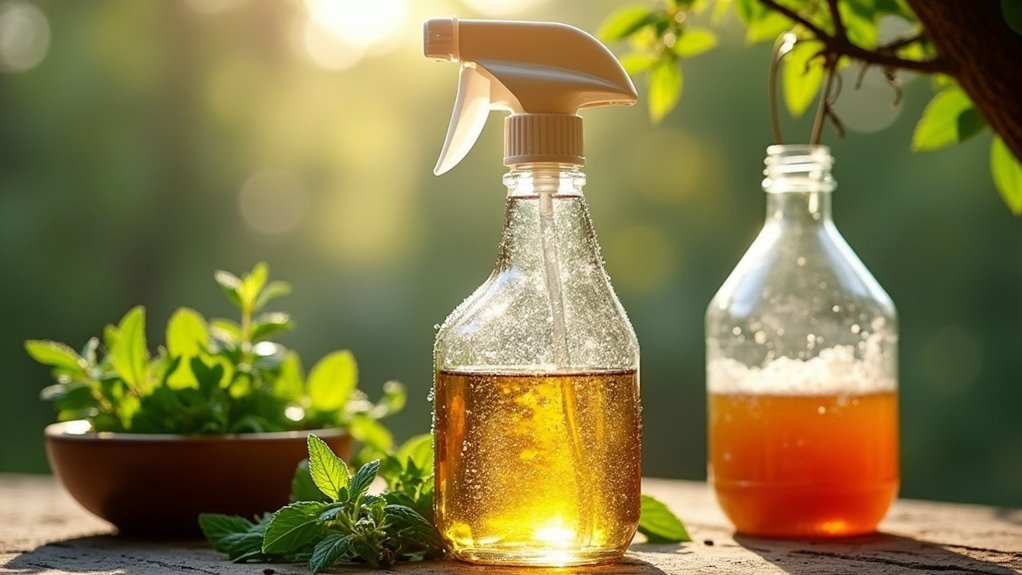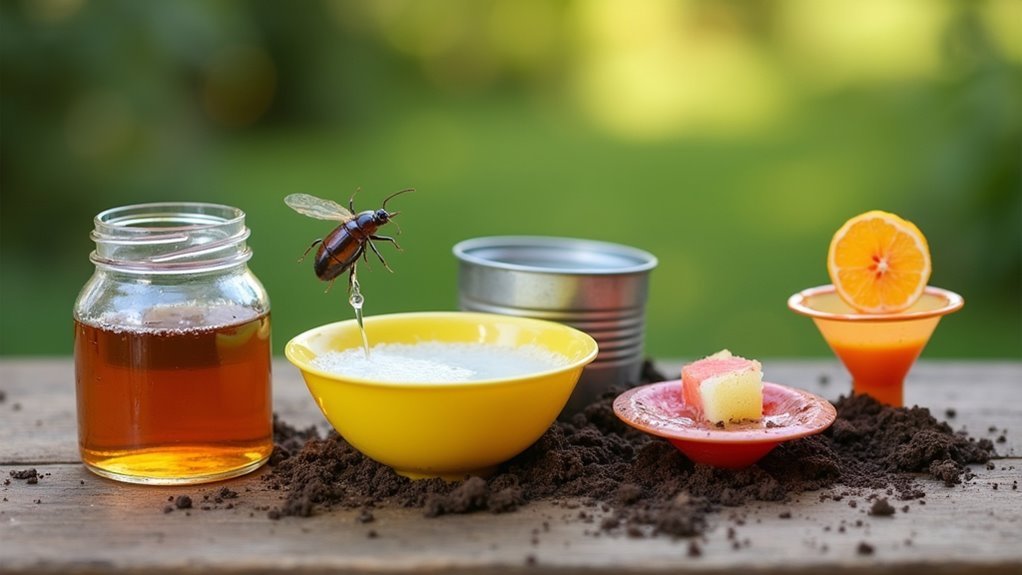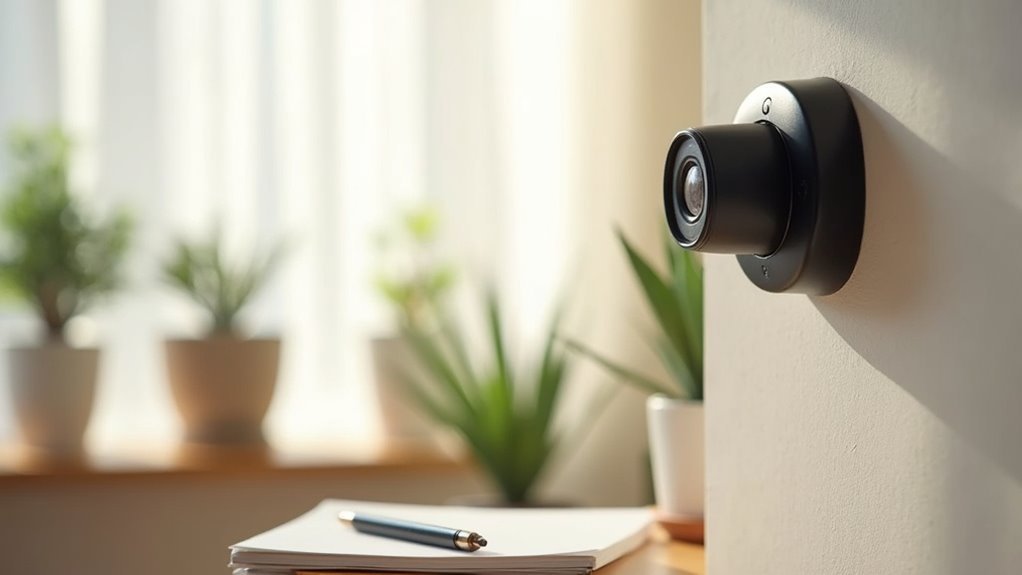You can eliminate wasp nests using three effective homemade methods. First, mix 1/4 cup dish soap with one quart of water and spray at night to suffocate wasps. Second, create a deterrent by combining four cups of water with one tablespoon of peppermint or clove essential oil. Third, construct traps using plastic bottles filled with sugar water and vinegar. Always wear protective clothing and maintain safe distances during treatments for best results.
Soap and Water Spray Method

When wasps build their nests around your home, you can eliminate them safely using a simple soap and water solution that costs pennies to make. This DIY spray method works through suffocation by clogging the wasps’ breathing pores when you spray it directly on the nest.
Mix 1/4 cup dish soap with one quart of water for effective removal.
Apply this treatment at night when wasps are less active and remain in their nest. Always wear protective clothing including gloves and long sleeves to prevent stings during the infestation treatment.
After spraying, wait at least 24 hours before removing the nest to guarantee all wasps are neutralized. This affordable approach effectively eliminates wasp colonies without expensive pest control services.
Essential Oil Deterrent Technique
Why resort to harsh chemicals when natural essential oils can effectively drive wasps away from your property?
This DIY remedy combines peppermint, lemongrass, or clove essential oils with water and soap solution for powerful wasp nest removal.
Mix four cups of water with one tablespoon of essential oil and several drops of dish soap in a spray bottle. Apply directly to nests and areas of high wasp activity during evening hours when wasps are less aggressive.
Essential oils disrupt wasps’ sensory receptors, making locations unappealing for nesting.
While this technique works well to repel wasps and prevent wasps from returning, it’s not a homemade wasp trap.
For established infestations, consider professional assistance alongside these natural deterrents.
Homemade Trap Construction

Three simple materials create an effective homemade wasp trap that’ll capture these pests without expensive store-bought alternatives.
Cut the top third off a plastic bottle and invert it into the bottom portion, creating a funnel that directs wasps inside while preventing escape.
Fill the trap with sugar water, vinegar, and dish soap—the sweet scent will attract wasps while soap breaks surface tension, causing them to drown.
Place your homemade trap construction in shaded areas away from human activity to avoid drawing wasps to living spaces.
Add protein-rich baits like tuna for enhanced effectiveness, especially late summer when wasps seek protein sources.
Check and empty traps regularly to maintain effectiveness and avoid overflow that allows escape.
Frequently Asked Questions
What Is the Best Homemade Wasp Nest Killer?
You’ll find dish soap mixed with equal parts water works best as a homemade wasp nest killer. It clogs wasps’ breathing holes, suffocating them instantly when you spray it directly on nests.
What Is a Home Remedy to Get Rid of a Wasp Nest?
You can mix boiling water with dish soap and spray it directly on the nest. Alternatively, combine equal parts vinegar and water with dish soap for an effective contact killer solution.
Does Dawn Dish Soap Really Kill Wasps?
Yes, Dawn dish soap really kills wasps by clogging their breathing openings when you spray it directly on them. You’ll need to mix it with water and apply it carefully for effective results.
What Is a Homemade Recipe for Getting Rid of Wasps?
You’ll mix one cup of dish soap with one cup of water and spray it directly on the nest. This suffocates wasps by clogging their breathing spiracles, effectively eliminating them.
In Summary
You’ve now got three effective methods to tackle wasp nests safely from home. Remember, you’ll want to approach nests during early morning or evening when wasps are less active. Don’t forget to wear protective clothing and have an escape route planned. If you’re dealing with a large nest or you’re allergic to stings, you shouldn’t hesitate to call professional pest control instead.





Leave a Reply